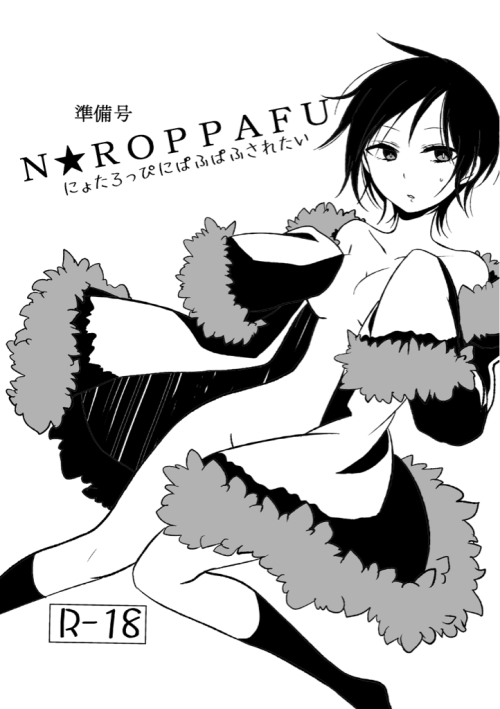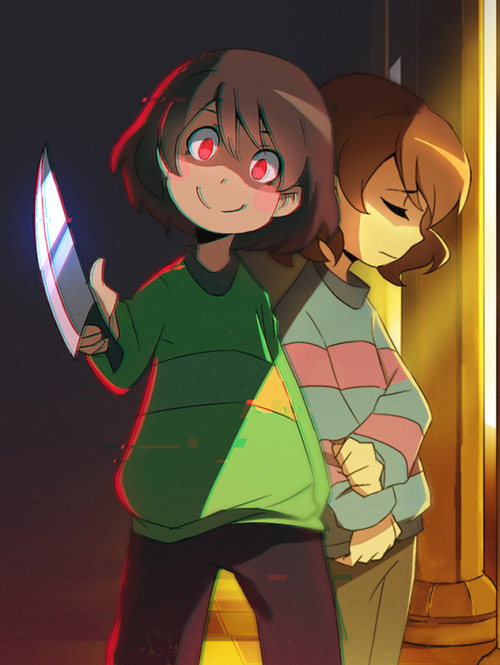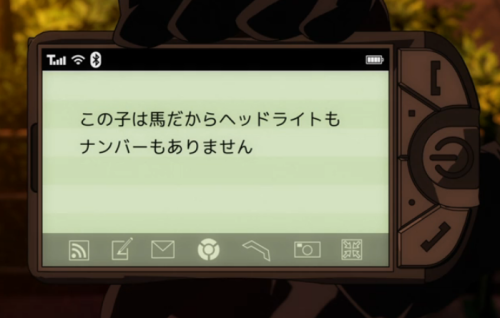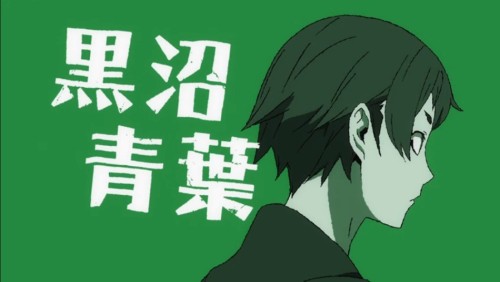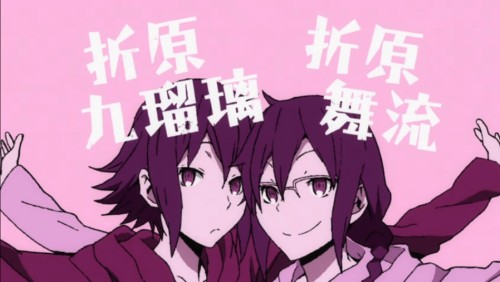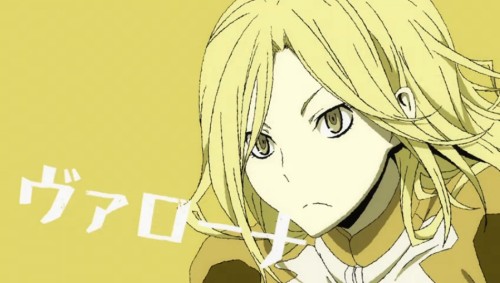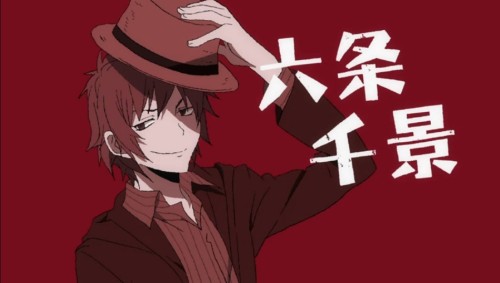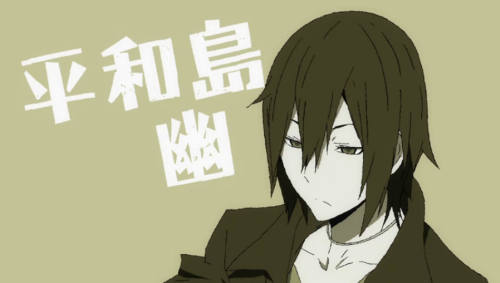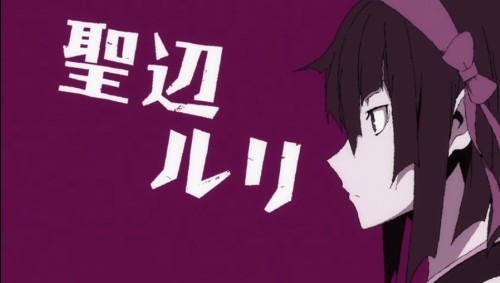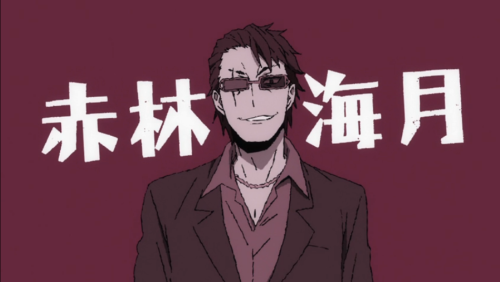#durarara
Here’s a quick doodle of Shinra and Celty.
There relationship is probably the most healthiest in the whole show.
Post link
Japanese saying of the week!
闇夜に烏 (やみよにからす)
Indistinct, hard to make out
Literally “a crow on a dark night.”
- 闇夜(やみよ/yamiyo) dark night, pitch-black night
- に (ni) in
- 烏(からす/karasu) crow, raven
(I’m guessing the Durarara episode is named this partly because Celty was talking about how there’s trouble brewing but no one really sees it yet, and partly because Vorona’s name means “crow” in Russian)
Also available in the longer form 闇夜に烏、雪に鷺 (やみよにからす、ゆきにさぎ) “a crow on a dark night, an egret in the snow”


Post link
Japanese saying of the week!
一寸先は闇(いっすんさきはやみ)
The future is a mystery
For situations when no one can even sort of predict what’s going to happen next.
- 一寸(いっすん/issun) one sun(old unit of measurement, about 3 cm)
- 先(さき/saki) just in front of
- は(wa) marks the topic of a sentence (this sentence is about the space just in front of us)
- 闇(やみ/yami) darkness
So literally “It’s dark one inch in front of us”

Post link
Japanese saying of the week!
人の踊るときは踊れ(ひとのおどるときはおどれ)
Go with the flow; when in Rome, do as the Romans do
Literally “When people are dancing, dance.”
- 人(ひと/hito) person, people
- の(no) …usually shows possession, but can sometimes act like a は or が when you use a whole sentence (like 人は踊る) to describe a noun (like とき). I guess you could think of it as the people’sdancing-time?
- 踊る(おどる/odoru) dance
- とき(toki) time (as in “at times when people dance…”)
- は(wa) marks the topic of the sentence (this sentence is about times when people are dancing, and what you should do about them)
- 踊れ(おどれ/odore) Dance! (as an informal command)
Post link
Japanese saying of the week!
泣き面に蜂 (なきつらにはち)
When it rains it pours; salt in the wound; adding insult to injury
A saying for when something bad happens and then something ELSE bad happens on top of that.
- 泣き面(なきつら/nakitsura) crying face
- に(ni) at, on, in
- 蜂(はち/hachi) bee, wasp
So literally bees at a crying face
that is BRUTAL
Like, you’re ALREADY crying

AND THEN BEES
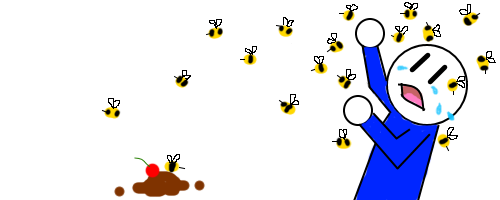
Post link
Japanese saying of the week!
和を以て尊しと成す
(わをもってとうとしとなす)
Treat harmony as the greatest virtue.
Okay this one is less of a saying and more of a historical quote. Story time!
See, back in the day (the day being about 600 A.D., when Japan was pretty new to the whole centralized government thing and there were a lot of small clans and lords vying for power) there was this guy Prince Shōtoku who was really important in the government. He sort of revamped Japan’s government to be like the Chinese system, and spread a lot of Buddhist and Confucian ideals through Japan.
One of his contributions (though he may or may not have actually written it; the earliest copy is from after his time) was a moral/ethical code for Imperial court officials to follow. It’s called the Seventeen-Article Constitution and you can read it in English here and Japanese (both classical and modern) here. Hooray for the public domain!
The first line of Shōtoku’s constitution is 和を以て尊しと成す, which basically means “take harmony, make it respected”:
- 和(わ/wa) harmony
- ~を以て(をもって/wo motte) with ~, using ~, considering ~
- 尊し(とうとし/toutoshi) cherished, exalted (modern Japanese 尊い)
- ~と成す(となす/to nasu) make something ~, treat something as ~
The general idea is “hey guys I know we have all these factions but shut up for a second and quit arguing just to argue, cause if we get along we can cover for each others’ weaknesses come on we need a balanced adventuring party here.”
I believe you can still use it today to tell your students to quit fighting or whatever!
Post link
Behold, one of the greatest excuses ever given for a traffic violation.
The speaker is Celty from Durarara, who is a headless horsewoman riding a spectral shadow horse…except that horses aren’t very practical on the streets of Tokyo, so she had her horse familiar take the form of a spectral shadow motorcycle instead.
Everyone thinks that the jet-black silent motorcycle is PRETTY SPOOPY at first, but eventually people start asking questions about whether it’s really SAFE to drive a motorcycle made of shadows and do you have a motorcycle license even?
One day Celty just gets fed up and says:
この子(こ)は馬(うま)だからヘッドライトもナンバーもありません
This is a horse, so he doesn’t have headlights or plates.
- この this
- 子(こ) child (この子 “this kid” works sort of like an endearment term for “this one”. Definitely treating the motorcycle as something alive.)
- は (comes after the topic of the sentence)
- 馬(うま) horse
- だ is
- ~から because~
- ヘッドライト headlight(s)
- も and, also
- ナンバー license plate (short for ナンバープレイト “number plate”)
- ありません isn’t, doesn’t exist
…and has the motorcycle transform back into a HUGE GHOST HORSE which just BLOWS THEIR MINDS
until traffic cop Kinnosuke Kuzuhara (bless his unnecessarily badass heart) takes one look at the situation, doesn’t even blink at suddenly seeing a horse instead of a motorcycle, and just goes “HORSES HAVE TRAFFIC LAWS TOO AND YOU ARE BREAKING THEM” and a high-speed chase ensues.
Post link
Japanese idiom of the week!
Look guys, I learned a saying today:
- 百聞は一見に如かず(ひゃくぶんはいっけんにしかず)
seeing is believing; a picture is worth a thousand words
Literally “a hundred listenings don’t equal one look”, because no matter how much you hear about something it’s just not the same as seeing it for yourself, even just for a little bit.
- 百聞(ひゃくぶん/hyakubun) “hundred” 百 plus “listen” 聞
- は (wa) makes 百聞 the topic of the sentence
- 一見(いっけん/ikken) one 一 look 見
- に (ni) to, at (here it’s helping say that hearing can’t reach tothe level of seeing)
- 如かず(しかず/shikazu) doesn’t reach, doesn’t equal, doesn’t live up to (如く is an old verb that I just now learned. It means “measure up to” or “equal”. The ず is an old way of negating a verb which works a lot like ない does in modern Japanese)
(somehow I have a feeling that Japanese idiom of the week is gonna be a thing for a little while haha)
Post link
I was keeping it together pretty well until these folks started just casually showing up in the theme song like it weren’t no thing.
Post link

